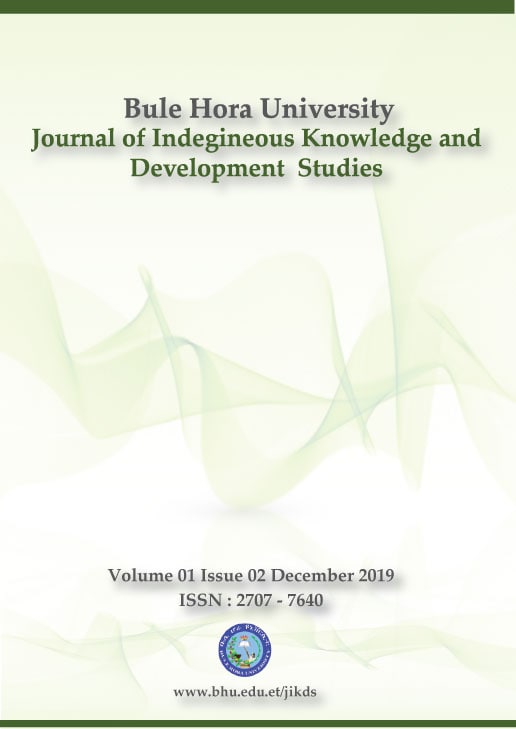Analysis of Intellectual Property Law Gaps in Ethiopia and Beyond
Keywords:
Indigenous community, Indigenous knowledge, Intellectual Property, legal frameworks, legal protectionAbstract
Indigenous Knowledge (IK) is deemed as the knowledge, innovations, and practices of indigenous and local communities experienced in medicine, spiritual activities, natural resource conservation, agricultural production, trade, administration, food security, etc and passes orally from generation to generation. The contemporary legal frameworks are designed in line with mostly recognizing and protecting the right of individual person emanating from scientific innovations than beliefs, knowledge, practices, innovations, arts, spirituality and other cultural expressions. Whereas, IK is held in most cases by groups and there is collective right. This paper analyzed the legal protection accorded to IK at international, regional and national level with particular emphasis to the legal gaps within Ethiopia’s Intellectual Property (IP) legal frameworks. In doing so, various legal documents and literature are analyzed qualitatively and analytical research method was employed. This paper finds that there are legal gaps/lacuna within the existing IP laws and other related laws which aim at protecting knowledge, innovations and practices in general and with regard to the protection of IK in particular. The paper at hand is delimited to analyze only Ethiopia’s IP laws which have identified roles in protecting IK such as copy right law, patent law, trade mark law, genetic right law, and incidentally geographical indication system. Ethiopia’s IP laws are inclined mostly towards protecting individual knowledge, creativity and rights than collective rights. It is found that due to lack of adequate IP legal frameworks protecting IK, and community knowledge, developing countries in general and Ethiopia’s in particular are the victim of the exploitation, usurpation, and piracy of IP rights and inability to earn the necessary economic and cultural benefits accruing from IK. The prevailing gaps within the national IP laws also pose a problem in most cases with regard to IK protection in its entirety. This indicates that it is necessary to revisit and amend, where necessary, the existing IP laws and related laws of the country, and employ alternative mechanisms of protection such as sui generis system, petty patent, and plant patent as the case might be in order to accord necessary protection to IK and accommodate the collective rights to IP legal frameworks. Urging for the existence of binding international legal framework and organizations working on IK protection can serve as alternative mechanism in order to promote the protection accorded to it. In addition, awareness creation from local to international level about the vital role of IK is necessary.
Downloads
Published
Issue
Section
License
Copyright (c) 2019 Bule Hora University

This work is licensed under a Creative Commons Attribution-NonCommercial 4.0 International License.

